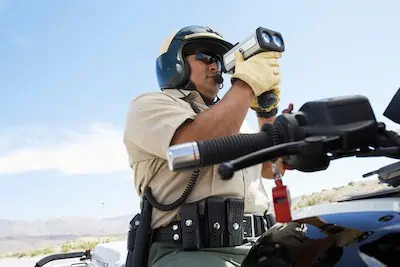Florida’s rules for motorcyclists are unique compared to most other states in the country. Instead of having insurance laws and requirements for riders to follow like other vehicles, they’re based on the owner’s financial responsibility for liability.
Motorcycle owners aren’t required to carry insurance to register their bikes. If a crash occurs, the rider is financially responsible for the incident.
Didn't You Try Our Quote Comparison Tool Yet? Save BIG by Doing it!
Riders have three options from which to choose to show that they meet the financial responsibility obligations of the state.
- They can purchase a liability insurance policy from a carrier licensed to provide this service in Florida.
- It is possible to obtain a Financial Responsibility Certificate by posting a surety bond with a state-licensed company. This option might require a deposit of securities or cash with the Department of Highway Safety and Motor Vehicles or the DHSMV.
- A self-insurance certificate can be granted from the Bureau of Financial Responsibility after riders provide evidence of their net encumbered capital.
The no-fault rules that apply to passenger vehicles in Florida don’t apply to motorcycles. That means riders must pursue compensation from another driver’s insurance for lost income, bike damage, medical bills, and other expenses. They’re not required to meet a threshold or prove injury severity as others are in four-wheel vehicles.
For that reason, it’s sometimes beneficial to obtain uninsured motorist coverage if a collision occurs with a driver who doesn’t have liability insurance.
What Are the Penalties for Not Proving Financial Responsibility?
Although riders can register a motorcycle in Florida without acquiring insurance, penalties are implemented if an accident occurs and a policy or financial responsibility certificate hasn’t been obtained.
Riders charged with an accident are financially responsible for all property damage and bodily injuries. Without liability coverage, severe consequences could include any or all of the following outcomes.
- Driving privileges could be suspended.
- The tag or registration for the motorcycle could be suspended.
- A requirement to purchase property damage and bodily injury liability coverage for the next 36 months.
- Civil judgments are awarded for the damages caused by the accident or collision.
That means motorcycle coverage in Florida isn’t mandatory until it’s been found that you’re at fault in an accident.
How Can Riders Prove They Have Coverage?
If riders must prove they have coverage in Florida because of past events, four forms of proof are typically accepted in the state.
First, you can present a physical insurance card from your carrier. If that isn’t available, a digital alternative or a photograph of the document is often suitable.
Another option is to show your account information on a web page when this data is requested. If your provider offers an online dashboard, you could log in to show your current status.
Finally, a self-insurance certificate from the Bureau of Financial Responsibility is also considered proof of coverage.
Although motorcycle insurance isn’t mandatory, it can be helpful for many riders. That’s why a complete review of all possible options is helpful when you’re ready to explore Florida with your bike.
Use This Tool for Free and Save on Quotes!






